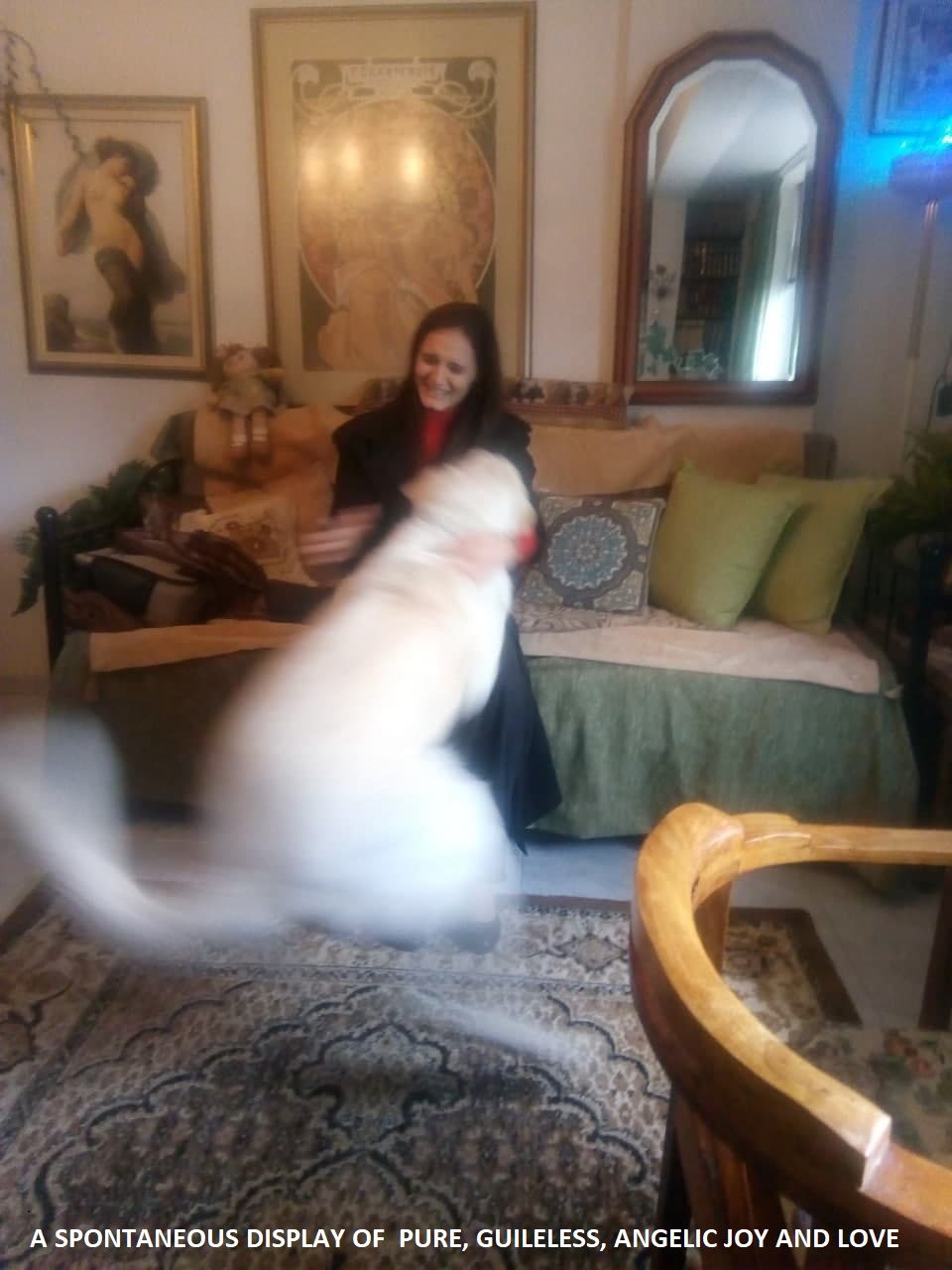|
|
Orthodox Outlet for Dogmatic Enquiries | The Fathers |
|
“All
dogs go to Heaven” Source: https://blogs.ancientfaith.com/
|

|
The fathers do not agree utterly on the question of animals and
eternal life – so the question of their eternal disposition is
never answered in a manner that satisfies. But there are a few
things worth pondering about the lives of animals (of which I
have chosen dogs as representatives).
Animals, like all creation, are subject to the same corruption
as human beings. St. Paul says that all creation has been made
subject to the same process of death and decay that human beings
endure:
For the creation was subjected
to futility, not willingly, but because of Him who subjected it in
hope; because the creation itself also will be delivered from the
bondage of corruption into the glorious liberty of the children of
God (Romans 8:20-21).
This “subjection” is not “willingly,” i.e. creation made no
sinful decision that
caused this to happen. Thus, in a certain sense, creation is not
“fallen.” However, it is subject to the same “fallen” existence
that we know. Were fallen human beings to live in an unfallen world,
our catastrophe would be greater (perhaps unredeemable). Little
wonder, however, that creation groans.
That it tolerates our footsteps is a sign of great patience and
love.
So, what does it mean that creation is fallen yet not fallen?
I return to dogs. It is not incorrect to say that a dog is
without sin. It does nothing wrong, nothing un-doglike. Dogs act
in accordance with their nature. Human beings, however,
frequently act contrary to their nature. This unnatural life
is the very epitome of sin.
This, of course, is not to say that dogs do not do terrible
things. It says, however, that the terrible things they do are
the result of human abuse and sin. We
make them what they are.
However, were they not consistently acting in accordance with
their nature, they would not be trainable. They are able to be
taught – but not taught to be something other than a dog
(despite the fact that we sometimes think of them as acting in a
human-like manner).
Do dogs pray (does creation pray)? Absolutely! “Let everything
that has breath praise the Lord” (Psalm 150:6). But how do
they pray? Their very existence is prayer. Every created nature
is made to live in communion with God. Human nature itself lives
in communion with God. Our fall does not consist in becoming
something other than human – we have yet to become truly human.
Thus St. Paul says: “Man is the glory of God” (1 Cor. 11:7). And
St. Irenaeus says, “The glory of God is man fully alive” (Adv.
Her. 4.34.5-7). Our becoming truly human would mean
the restoration of our true integrity – we would live in
accordance with our nature and praise the Lord without ceasing.
The natures of all creation ceaselessly praise God by their very
existence. Our struggle is to rejoin the song of creation with
the whole of our being.
I confess that my dog-thoughts are the result of living with a
puppy since Bright Monday. We are daily rejoicing and struggling
with the consequences of his dog nature in the environment of my
human house. He is learning and I am learning. Given my
propensities, I cannot help but theologically reflect on it all.
The ultimate disposition of dogs (and all creation) is in the
hands of God. I personally pray that the groaning of creation
will be met with a liberation that includes an eternal life for
all and everything. At present, my dog and I groan for the
liberation of a well-trained life. I pray to become more
consistently human – and I’m sure he prays for the same thing.
|
